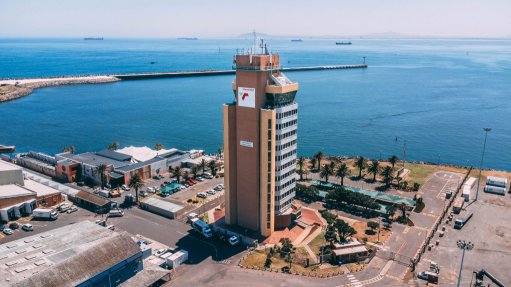Intersectional issues in renewables: the race debate in the energy sector
We must guard against the idea that green means socially responsible and equitable. Green and optimum social outcomes are not synonymous; therefore, a debate about intersectional issues relating to gender, race, inequality and justice is warranted.
Green transitions can preserve the old system of inequity and racial injustice. Those promoting energy transitions think that, if you put the word ‘just’ in front of ‘transition’, then justice will ooze out of renewable energy.
Renewables associations – which, effectively, are business lobbies for bigger renewables markets – primarily concern themselves with profits and tend to relegate everything else to a lower level of priority.
Issues of intersectionality have received little attention from the renewables community, but the renewables business lobby had to get out of its cloister when the former chairperson of Irish renewable-energy developer Mainstream Renewable Power, Eddie O’Connor, put his foot in it. In an interview at the Dublin Climate Talks, in May, he so confidently argued that Africans are not so keen on renewables because they come from tribal societies and so do not understand the new green wave of modern society. The tribal comment had all the undertone of renewables bringing civilisation to the African continent.
He blamed African ‘tribalism’ for the slow development of renewables on the continent, hinting that, out of a sense of ‘the white man’s burden’, he was willing to be a saviour of Africans, as they must be persuaded to get off fossil fuels fast.
Renewables proselytising had nothing to do with saving the planet, presumably, but provided a useful cover for Mainstream’s profit margins in the future. O’Connor demonstrated no cosmopolitan inclination, and was acting on an uneducated hunch, drawing not from knowing the ‘other’ but relying on a prejudice that, no doubt, had been around for some time.
Opposing groups on social media that speak about each other in stereotypical ways display what one could call virtual or cyber-tribalism, and this is despite the fact that they have access to modern technology. You do not have to live in Africa to be tribal. We are all tribal when we are driven by stereotypes, sticking to our own kind, hanging out with specific groups and seemingly listening only to people who look and talk like us.
Tribal instincts are as old as human civilisation and there is no evidence that modern civilisation has erased tribalism. David Berreby examines in detail the life of tribalism (in the broadest sense, rather than in the parochial sense) in his book, Us and Them: Understanding Your Tribal Mind, reminding us that living in the modern civilisation has not made us less tribal but that we have tribal inclinations, depending on our stereotypes and the groups we hang out with most of the time.
O’Connor went out on a limb perhaps because he thought he could speak freely on matters relating to Africa on protected turf at a debating forum in Ireland. He thought he was on home ground – among his own tribe – and he suddenly became an expert on the African mind.
The former chairperson of Mainstream Renewable Power’s words were reflective of a general view in some quarters of the industry that is often condescending towards Africans in general and black people in particular. It did not seem as if he was doing this for the first time or that this would be the last time – one is told he has been a repeat offender.
Mainstream Renewable Power has significant investments in the renewables milieu in South Africa and is keen on expanding into the rest of Africa. Initially, O’Connor apologised. Well, that was clearly not acceptable. Why still have him as chair of Mainstream? Pressure mounted and he eventually resigned.
It took a while for the renewables associations to put out a statement condemning O’Connor’s remarks. They had to, because his comments were deeply insensitive and damaging to the renewables sector in South Africa, which is struggling to shake off its reputation of being mainly white and using the green agenda to milk the country, while offering little in return, with most of the profits repatriated. This, of course, is not entirely true, but the perception is there.
Racism and bigotry are often systemic. In the 1940s, Oliver Cromwell Cox wrote a famous piece titled Race: A Study in Social Dynamics, which was about how individual bigotry is a reflection of the system, not just the individual. The Othering and Belonging Institute, based in the US, also recently released a report on structural racism in that country – it is worth reading.
Bigotry against race, gender, sexuality and poor people is a practice of habit. While there are restraints to verbalising bigoted thoughts in public, in the private confines of coffee shops or while sipping wine among friends by the fireside, bigoted conversations do take place.
In countries with high levels of inequality and where certain groups tend to be subjected to prejudice and differential rights, renewables companies need to be socially conscious. They have to earn the social licence to operate in countries where they seek to make profits, and to contribute socially. For renewables companies to succeed in Africa, they need to up not only their IQ but also their EQ.
Article Enquiry
Email Article
Save Article
Feedback
To advertise email advertising@creamermedia.co.za or click here
Announcements
What's On
Subscribe to improve your user experience...
Option 1 (equivalent of R125 a month):
Receive a weekly copy of Creamer Media's Engineering News & Mining Weekly magazine
(print copy for those in South Africa and e-magazine for those outside of South Africa)
Receive daily email newsletters
Access to full search results
Access archive of magazine back copies
Access to Projects in Progress
Access to ONE Research Report of your choice in PDF format
Option 2 (equivalent of R375 a month):
All benefits from Option 1
PLUS
Access to Creamer Media's Research Channel Africa for ALL Research Reports, in PDF format, on various industrial and mining sectors
including Electricity; Water; Energy Transition; Hydrogen; Roads, Rail and Ports; Coal; Gold; Platinum; Battery Metals; etc.
Already a subscriber?
Forgotten your password?
Receive weekly copy of Creamer Media's Engineering News & Mining Weekly magazine (print copy for those in South Africa and e-magazine for those outside of South Africa)
➕
Recieve daily email newsletters
➕
Access to full search results
➕
Access archive of magazine back copies
➕
Access to Projects in Progress
➕
Access to ONE Research Report of your choice in PDF format
RESEARCH CHANNEL AFRICA
R4500 (equivalent of R375 a month)
SUBSCRIBEAll benefits from Option 1
➕
Access to Creamer Media's Research Channel Africa for ALL Research Reports on various industrial and mining sectors, in PDF format, including on:
Electricity
➕
Water
➕
Energy Transition
➕
Hydrogen
➕
Roads, Rail and Ports
➕
Coal
➕
Gold
➕
Platinum
➕
Battery Metals
➕
etc.
Receive all benefits from Option 1 or Option 2 delivered to numerous people at your company
➕
Multiple User names and Passwords for simultaneous log-ins
➕
Intranet integration access to all in your organisation

















